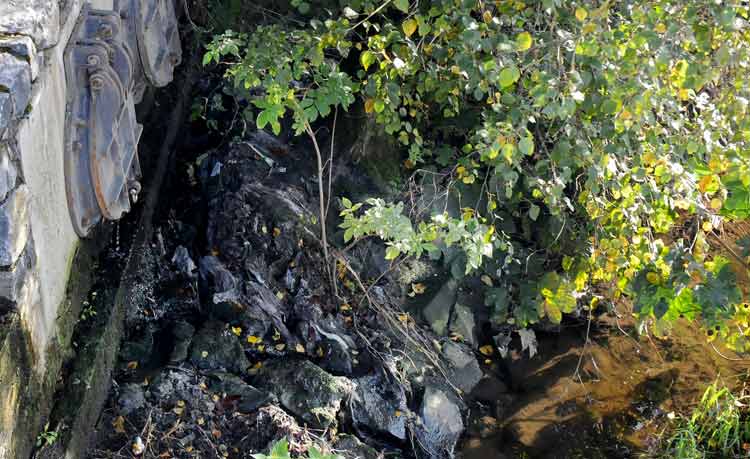
River Suir, Thurles, Co. Tipperary.
According to Environmental Protection Agency Ireland (EPA), the failure to address waste water deficiencies causes an unacceptable risk to not just Ireland’s environment but also to Ireland’s public health.
Waste water treatment at 50 of Ireland’s 185 large towns and cities fail to comply with standards set to prevent pollution and protect public health.
Sewage from the equivalent of 120,000 people across 44 areas still enters the environment untreated each day. Plans to install treatment at some of these areas is delayed by up to three years and most will not be completed until 2021.
Four bathing water areas were deemed unsafe for swimming due to health risks caused by sewage.
The EPA report on Urban Waste Water Treatment in 2016, released today, highlights the need for significant funding to address the legacy of underinvestment in infrastructure needed to collect and treat our waste water effectively. The report finds that treatment is inadequate in many areas.
Commenting on the report Mr Gerard O’Leary, Director of the EPA’s Office of Environmental Enforcement said,
“Waste water from over half our population failed to meet environmental standards. For many years Ireland has failed to address the deficiencies in waste water treatment. Substantial and sustained investment is now required to protect our valuable waterways and protect public health.”
Environmental Priorities
Here in Co. Tipperary, Mullinahone, Roscrea, and Thurles are all regarded as areas where improvements are required to resolve environmental priorities, with Thurles cited as an example of a large Urban Area where the collection and treatment of urban waste water is not meeting European Union standards.
Waste water is one of the principal threats to water quality in Ireland. The EPA identifies the this thteat as a priority area where resources must be targeted to bring environmental improvements where they are most needed.
50 large towns and cities where waste water treatment failed to meet EU standards. This includes Dublin, which needs a major upgrade of Ringsend treatment plant.
44 areas discharging untreated sewage. Counties Cork and Donegal account for nearly half of these areas. Five areas currently discharging untreated waste water are expected to be connected to treatment plants by the end of 2017. These areas are Youghal, Belmullet, Rush, Bundoran and Killybegs.
59 areas where waste water is the sole threat to rivers, lakes and coastal waters that are at risk of not achieving good status. Almost one quarter of these are in Counties Donegal and Galway.
4 areas where waste water contributed to poor quality bathing water. The affected beaches include Merrion Strand and Loughshinny Beach.
12 areas where improvements are needed to protect critically endangered freshwater pearl mussels in rivers such as the Blackwater and the Nore.
3 areas where disinfection of waste water is required to safeguard shellfish habitats.
Mr Darragh Page, Programme Manager of the EPA’s Office of Environmental Enforcement commented that;
“Ireland’s environment is at risk because waste water is not treated to the necessary standards, even though the final deadline to meet these standards was 2005. New or upgraded treatment systems are required in some areas. In other areas, there is already sufficient treatment capacity in place, but the management of the treatment systems needs to improve.

Leave a Reply